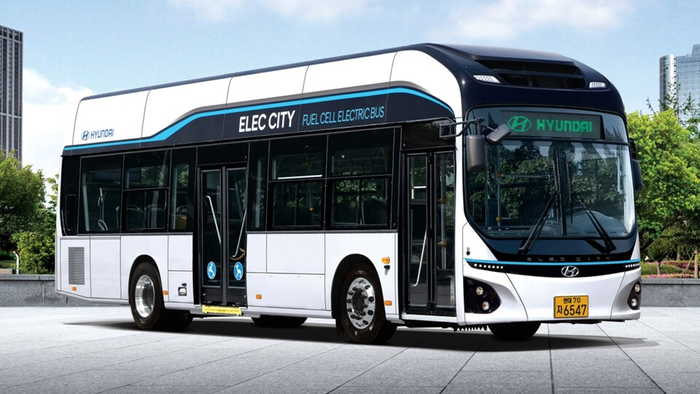One of the five large buses sold in Korea this year is hydrogen powered
Nearly one in five large buses sold in South Korea in 2025 to date has been a hydrogen fuel cell electric vehicle (FCEV). In response, Hyundai Motor Co. is increasingly focusing on hydrogen-powered commercial transport amid sluggish demand for hydrogen-powered passenger cars.
According to data from the Korea Automobile & Mobility Association (KAMA) and Hyundai Motor, 380 hydrogen-powered buses were sold in the first five months of 2025, out of 1,923 large buses sold overall. The market share stood at 19.8 percent, indicating a significant increase from 6 percent in 2023 and 14.4 percent the previous year.
Analysts say hydrogen power is better suited for commercial vehicles than for passenger cars. While electric vehicles work well for lighter, smaller vehicles, hydrogen-powered systems offer key advantages for larger vehicles, including longer range, shorter refueling times, and greater payload capacity.
An industry expert, said:
As vehicle size increases, the relative impact of hydrogen storage systems decreases, making FCEVs more efficient for buses and trucks,
Hyundai Motor is doubling down on hydrogen in the commercial segment, with the automaker supplying 12 hydrogen buses to Incheon International Airport from 2021 to 2023. It has also signed a partnership with On Bus, the country’s largest commuter bus operator, along with Hyosung Hydrogen and Samsung C&T Corp., aiming to transition the operator’s fleet to hydrogen-powered vehicles.
READ the latest news shaping the hydrogen market at Hydrogen Central
One of the five large buses sold in Korea this year is hydrogen powered, source

